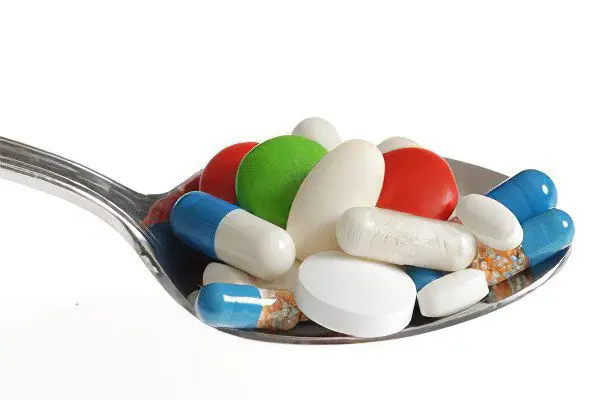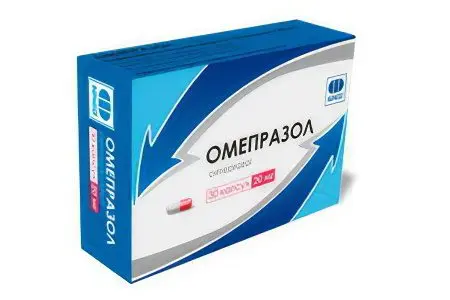Contents

Pancreatitis is not a disease that you can safely forget about and wait for the pancreas to recover on its own. If there is even a suspicion of this pathology, then you should immediately consult a doctor. Depending on the severity of the disease, it can be treated both at home and in a hospital.
Therapy will be aimed at eliminating the cause that caused inflammation of the pancreas. In addition, it is designed to solve such problems as:
Elimination of pain.
Elimination of enzyme deficiency, restoration of normal intestinal microflora, improvement of the gastrointestinal tract.
Elimination of endocrine insufficiency.
Naturally, to solve these problems, you need to take specialized drugs that have proven themselves in the fight against pancreatitis.
Antispasmodics and analgesics (pain relief)
In order to relieve spasm from the muscles of the intestine, the patient is prescribed antispasmodics. The most popular are Papaverine and No-shpa. However, if it is also required to additionally eliminate pain, then mixed preparations are used, such as: gastrocepin, atropine, platifillin.
If the patient comes with an attack of acute chronic pancreatitis, then the primary task facing the doctors is the rapid elimination of pain. Therefore, both conventional analgesics are sometimes used: pentazocine and baralgin, as well as narcotic drugs – tramal and promedol.
Enzyme deficiency compensation
To restore and normalize the function of digestion, doctors prescribe enzyme-containing preparations. They effectively eliminate the dysfunction of the pancreas that occurs with pancreatitis.
As prophylactic agents, enzyme preparations are prescribed, such as:
Creon
Lycrae
Pancytrate
Digestal
Festal
Enzistal
They allow you to avoid most of the dangerous complications of the disease and prevent the development of an exacerbation phase.
Enzymes can vary in composition and are:
Means containing bile. They effectively treat pancreatitis, but they should not be prescribed to people with gastrointestinal diseases such as ulcers, gallstones, gastritis. Bile-containing drugs include Ferestal, Festal and Enzym Forte.
Means containing only enzymes. They do an excellent job with the disease, but they can not be used for a long time. Prolonged and uncontrolled intake can provoke pancreatic dysfunction. Therefore, drugs such as Mezim and Pancreatin should be prescribed by a doctor.
Antacids (elimination of secondary symptoms)
Often with pancreatic disease, the patient has problems with the stomach when it begins to produce large amounts of hydrochloric acid. To neutralize it, a special group of drugs is used – antacids. They are designed to cope with exocrine insufficiency.
To reduce acidity and reduce the destruction of enzymes, such means as:
Maalox
Almagel
Phosphalugel
Often patients with pancreatitis suffer from:
Dysbacteriosis and diarrhea, Hilak Forte and Smekta will be able to cope with these problems.
Trimedat will save from intestinal motility disorders.
From general intoxication – Enterosgel and activated charcoal.
Nausea and vomiting. If the patient is haunted by nausea, accompanied by vomiting, then this condition can be overcome with the help of Cerucal and Duspatalin.
Antisecretory drugs for pancreatitis

Modern drugs for the treatment of pancreatitis include proton pump inhibitors and histamine H2 receptor blockers. These include:
Omeprazole
Rabeprazole
Lansoprazole
Pirenzepine
Rabeprazole
These drugs are able to stop pain, reduce the secretion of hydrochloric acid and eliminate abdominal syndrome. These remedies are effective even in chronic pancreatitis. Therefore, they are most often prescribed for the treatment of this disease, with the exception of only individual cases.
Glugard (phytopreparation)
Another effective remedy for maintaining the normal functioning of the pancreas is Glugard. Also, this drug is used to treat diabetes and is indicated for people who have nutritional errors: those who use high-carbohydrate diets, who love flour and sweets.
As a rule, diabetogenic foods most often predominate in the diet of both adults and children:
Foods high in sucrose.
Jam and sweet chocolate.
All confectionery.
Manka
Bananas and grapes.
Fig.
Potato and starch.
White flour products (pastries and pasta).
Due to such an irrational menu, combined with low physical activity, more and more serious diseases such as vascular atherosclerosis, diabetes mellitus and, of course, pancreatitis occur.
Glugard works in three directions at once:
Reduces the need for fast-digesting carbohydrates.
Reduces the level of glucose in the blood and accelerates its excretion from the body.
It is the prevention of metabolic syndrome and restores the sensitivity of cells to normal glucose levels.
Glugard Recommended for use by the following groups of people:
Children with nutritional errors and consuming large amounts of simple carbohydrates.
Adherents of diets and fasting days.
Persons with metabolic disorders. In this case, it is recommended to take 1 tablet per day.
The main action of Glugard is aimed at normalizing carbohydrate metabolism. It helps to cope with a condition such as NTG. Modern nutritionists define it as impaired glucose tolerance.
However, before starting treatment with any of the above remedies, you should definitely visit a doctor, clarify the diagnosis and get advice on each drug.









